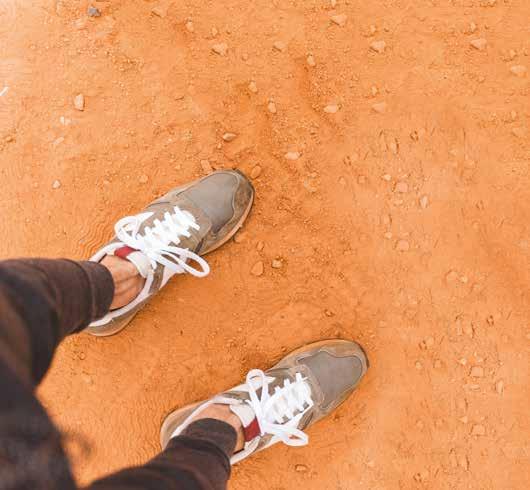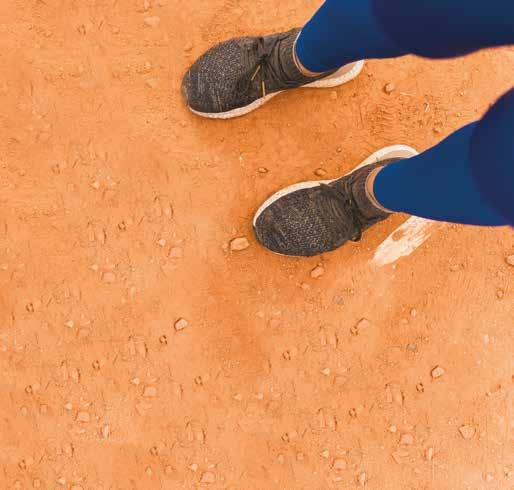
3 minute read
DO STAY IN TOUCH
Anxious? Talk to us
Having trouble coping with Anxiety? Need help?
DO STAY IN TOUCH
You can refer yourself online by visiting talkliverpool.nhs.uk or calling 0151 228 2300, alternatively you can be referred by your GP or another health professional.
“We’re being asked to suppress our profoundly human and evolutionarily hard wired impulses for connection: seeing our friends, getting together in groups, or touching each other,” says Nicholas Christakis, a social scientist and physician at Yale University.
So how do we adapt so we can follow the advice but avoid a sense of loss at not being able to hug, kiss, shake hands – or even just be in the company of others.
Julianne Holt-Lunstad, a research psychologist at Brigham Young University, points out that research on altruism has found that giving support can be even more beneficial than receiving it.
“Any one of us can pick up a phone and call to see how people are doing and what they might need. Not only will helping others potentially help them, but it can help us to still feel connected as well.”
Texting, email, and apps like Skype and FaceTime can definitely help people stay in touch. “We are fortunate to live in an era where technology will allow us to see and hear our friends and family, even
from a distance,” says Nicholas Christakis. They’re not as good as face to face interactions, but they’re infinitely better than no interaction.”
WHAT IS SOCIAL DISTANCING?
Until a few weeks ago the words social distancing were the stuff of psychology textbooks. Now we all need to know so we can do it. So what does it mean?
According to the Government website social distancing measures are steps you can take to reduce the social interaction between people. It’s being used now to reduce the transmission of coronavirus (COVID-19).
Being close is what makes life a pleasure. Now we’re being asked to distance ourselves from others. How will we manage?

WHAT SHOULD WE BE DOING?
• Stay at home
• Only go outside for food, health reasons or work (but only if you cannot work from home)
If you go out, stay 2 metres (6ft) away from other people at all times
Wash your hands as soon as you get home
• Do not meet others, even friends or family.
You can spread the virus even if you don’t have symptoms.
MAKE A PLAN
Make a plan to stay in touch
• talk to your neighbours and family and exchange phone numbers of household contacts
consider and plan for those in your home who are considered vulnerable
create a contact list with phone numbers of neighbours, schools, employer, chemist, NHS 111
• set up online shopping accounts if possible.
For more information go to gov.uk
Social psychologist Theresa DiDonato says while it’s unnatural for humans to stay away from each other ‘we can be with each other through virtual means for now, so that this strange new normal can be in our past’.
Her ideas include:
• Video chat with friends you’ve never video chatted with before
Schedule a virtual happy hour. These are not perfect substitutes for in person connection, but they can be fun. Tell your attendees to bring their refreshments - and their good moods
YOUR
SONG
Ever considered joining a choir but never plucked up enough courage? Now you can join in from the comfort of your armchair.
Sofa Singers (www.thesofasingers.net) is a free and weekly online singing event to bring people together from around the world to spark joy and human connection. Set up by vocal leader James Sills, as a response to global self isolation, The Sofa Singers offers a 45 minute choir rehearsal and no one can hear you. If you join in you will be able to see other singers and take part in a virtual tea break if you want to.
• Studies show singing stimulates your feel good endorphins.
• Make a play list or tune into a radio station that plays your kind of music, then turn up the volume (try not to annoy the neighbours) and sing!










